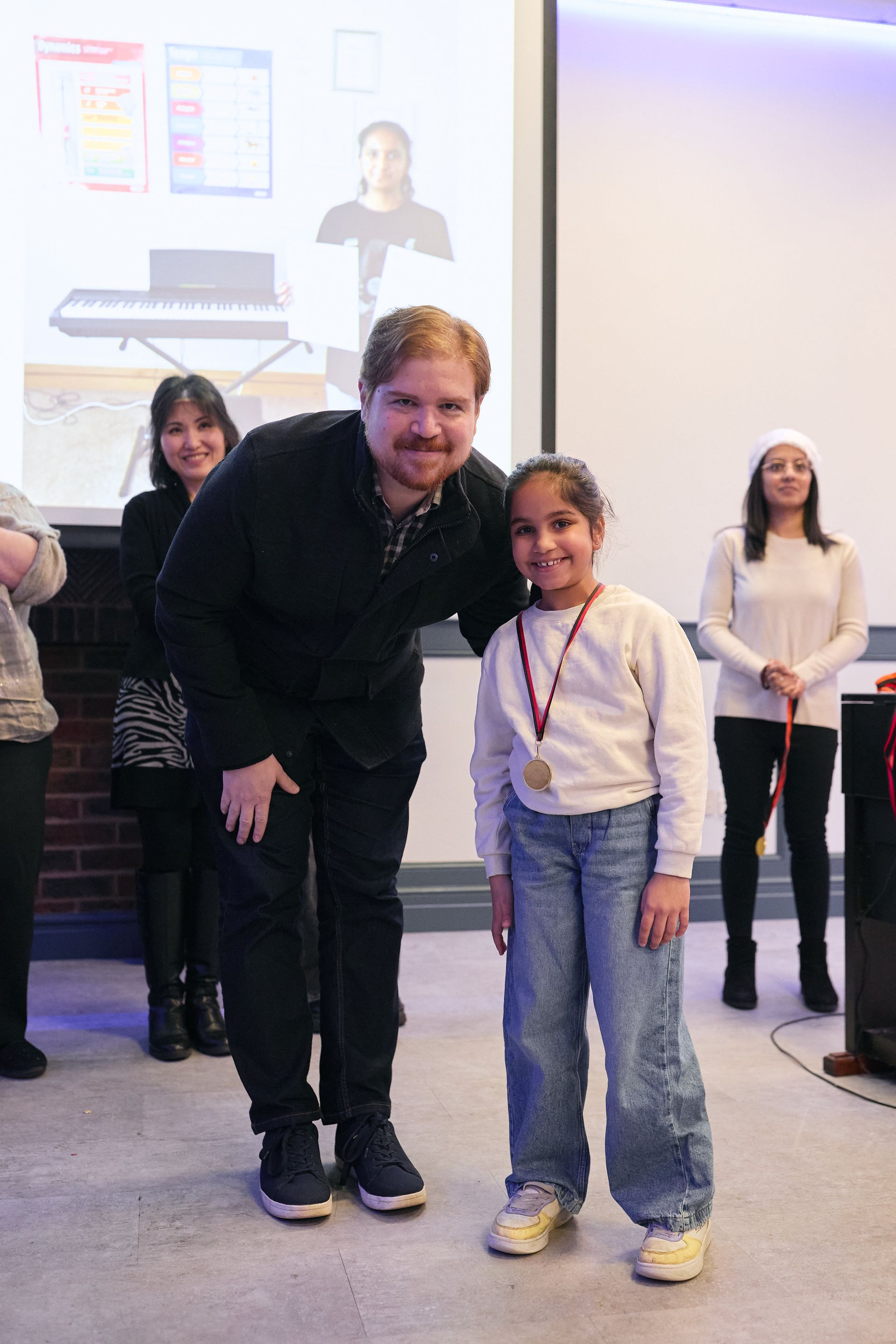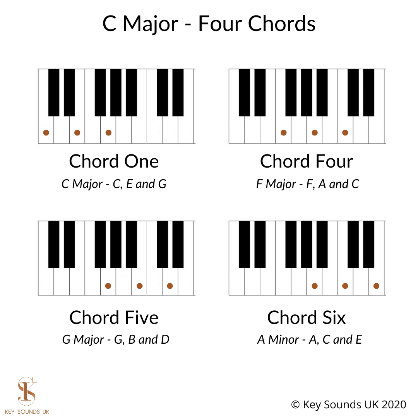No Sheet Music, No Worries

No Sheet Music, No Worries – Our Top Takeaways
· Melody and Chords
Vinaya and Reshmi have both taught students how to improvise and in their Facebook Live they explored the different ways they approach this.
For those who are unsure, ‘improvisation’ is when you create your own song.
Vinaya mentioned that she teaches her student to work out the melody or tune of the song they are trying to learn. After this the student can then begin to add in the bass line using chords.
However, whilst Reshmi encourages this method, she also teaches in the reverse order via theory concepts. She teaches students the bass line by working out the key and then adding in the melody or tune.
Both Vinaya and Reshmi encourage their students to start off with a song they know and love! This is because you’ll be able to learn the melody of the song much faster than you think as you will be very aware of how the song should sound. A common one students enjoy trying out is ‘Happy Birthday’.
· Chord Patterns
There is a variation of chord you can play in the bass line of a song:
1) If your piece is in a Major Key you can play the 1st, 4th, 5th or 6th chords
For example: If you had a key of C Major here is the chord sequence:
Chord One: C, E and G
Chord Four: F, A and C
Chord Five: G, B and D
Chord Six: A, C and E
2) The 1st and 5th Chord
For example: If you had the key of D Major, the 1st and 5th notes are:
1st letter, also known as the Tonic: Letter D
5th letter, also known as the Dominant: Letter A
3) Inverted Chords
For example: If you had the key of G Major, the 1st, 3rd and 5th notes are:
1st note: G, 3rd note: B and 5th note: D
An inverted chord is when you play these three notes in another order where G is not at the bottom of the chord.
For example: B, G or D or D, B and G.
Vinaya and Reshmi mentioned, these three suggested chord patterns above would compliment the melody well when they notes are in alignment with one another.
For example: If you are playing letter C in your right-hand melody, your complimentary chord in your left-hand melody should include letter C.
· Resilience
Both Vinaya and Reshmi recommend being open to failing. It will take practice but it’s incredibly rewarding to play the songs you love!
If you missed our Facebook Live, feel free to catch the replay over on our Facebook Page here: https://fb.watch/3_226UHJBW/
Remember that when you are trying out these hacks to look at them little and often but also be patient with yourself. If you wish to know more about these hacks and resources, feel free to take a look around our website or connect with us directly.
To find out more, feel free to get involved in our latest project “The Habits of the Top Performing Piano Players”, fill out our survey: https://bit.ly/2FDs8rf For your chance to win a Nintendo DS Lite or a £50 Amazon Gift Voucher.





